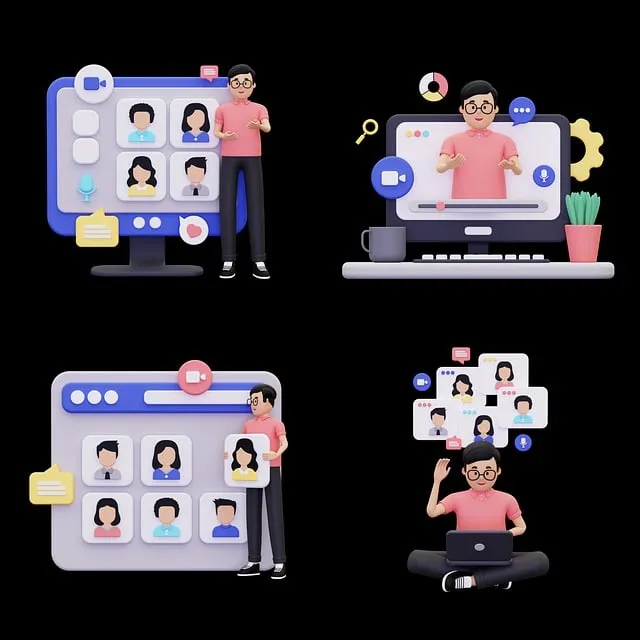In today's digital era, "Confidential Computing for Non-Profits" is crucial for protecting sensitive data related to donors, beneficiaries, and campaigns. By using secure processing methods within protected environments, non-profits can analyze datasets while maintaining data integrity and confidentiality, enhancing trust with stakeholders and preventing data breaches that could harm their reputations and missions. Tools like stealthy browsers offer advanced encryption and anonymous browsing for corporate intelligence officers, safeguarding strategies and market trends from potential threats. Non-profits can strengthen data security through local processing, strict access controls, regular audits, employee training, and partnerships with specialized providers, leveraging Confidential Computing to gain a competitive edge in data protection.
In today’s digital landscape, non-profit organizations face unique challenges when it comes to data security. “Stealthy Browser for Corporate Intelligence Officers Only” explores the critical need for confidential computing in non-profits and how stealthy browsers play a pivotal role in corporate intelligence. Discover secure browsing solutions tailored for sensitive data, reaping benefits that enhance operational efficiency while adhering to stringent privacy standards. Learn best practices to implement confidential computing tools effectively.
- Understanding the Need for Confidential Computing in Non-Profit Organizations
- The Role of Stealthy Browsers in Corporate Intelligence
- Implementing Secure Browsing Solutions for Sensitive Data
- Benefits and Best Practices for Non-Profits Using Confidential Computing Tools
Understanding the Need for Confidential Computing in Non-Profit Organizations

In the digital age, non-profit organizations face unique challenges when it comes to data security and privacy. As they often handle sensitive information related to donors, beneficiaries, and advocacy campaigns, ensuring confidential computing is paramount. Confidential computing allows for secure processing of data within a protected environment, shielding critical information from unauthorized access or leaking out.
For non-profits, this means being able to analyze and derive insights from vast datasets while maintaining the integrity and confidentiality of the data itself. By adopting confidential computing practices, these organizations can make informed decisions, enhance their operational efficiency, and build trust with stakeholders without compromising sensitive data. This is especially crucial in an era where data breaches and privacy invasions can have severe consequences for non-profit reputations and missions.
The Role of Stealthy Browsers in Corporate Intelligence

In today’s digital age, Confidential Computing for Non-Profits is not just a buzzword but an essential tool for organizations dealing with sensitive data. Corporate Intelligence Officers play a pivotal role in navigating this landscape, requiring them to use tools that respect privacy and security. This is where stealthy browsers come into play. These specialized web browsers offer advanced encryption and anonymous browsing capabilities, ensuring that intel gathering activities can be conducted without leaving digital footprints.
By employing stealthy browsers, Intelligence Officers can discreetly access restricted websites, gather competitive insights, and monitor online activities without raising suspicions. This level of discretion is crucial for maintaining the confidentiality of corporate strategies and market trends. Moreover, these browsers provide a secure environment, protecting sensitive operations from potential threats and ensuring that all data exchanged remains within authorized channels.
Implementing Secure Browsing Solutions for Sensitive Data

In today’s digital era, Confidential Computing for Non-Profits has become a cornerstone in protecting sensitive data. For Intelligence Officers dealing with critical corporate information, implementing secure browsing solutions is paramount. Specialized browsers designed for stealth and security offer a robust shield against potential threats, ensuring that confidential data remains exactly that—confidential.
These advanced tools encrypt data at rest and in transit, rendering it inaccessible to unauthorized parties. By employing such solutions, Intelligence Officers can navigate the web with peace of mind, knowing their activities are protected from external intrusion. This level of security is especially crucial when handling sensitive corporate intelligence, ensuring operations remain untainted by malicious actors or accidental data breaches.
Benefits and Best Practices for Non-Profits Using Confidential Computing Tools

Non-profit organizations can greatly benefit from adopting confidential computing tools, ensuring secure data handling and enhanced privacy. These tools allow organizations to process sensitive information locally on their own hardware, reducing the risk of data breaches and unauthorized access. By employing confidential computing, non-profits can gain a competitive edge in data security while maintaining the trust of their donors and beneficiaries.
Best practices for implementing these tools include strict access controls, regular audits, and employee training to ensure proper usage. Non-profits should also consider partnering with specialized providers who offer tailored solutions, ensuring compatibility with existing systems and infrastructure. Additionally, staying updated on emerging technologies and industry standards is vital to maximize the benefits of confidential computing in a dynamic digital landscape.
Non-profit organizations, while driven by noble causes, often deal with sensitive data that requires robust security measures. Implementing confidential computing tools, such as stealthy browsers, is a game-changer for protecting intellectual property and maintaining the integrity of operations. By adopting secure browsing solutions, non-profits can enhance their operational efficiency and ensure they remain competitive in an era where data is a valuable asset. Confidential computing enables organizations to navigate digital challenges while safeguarding their most valuable resources, fostering trust among stakeholders and enabling them to focus on making a positive impact.
